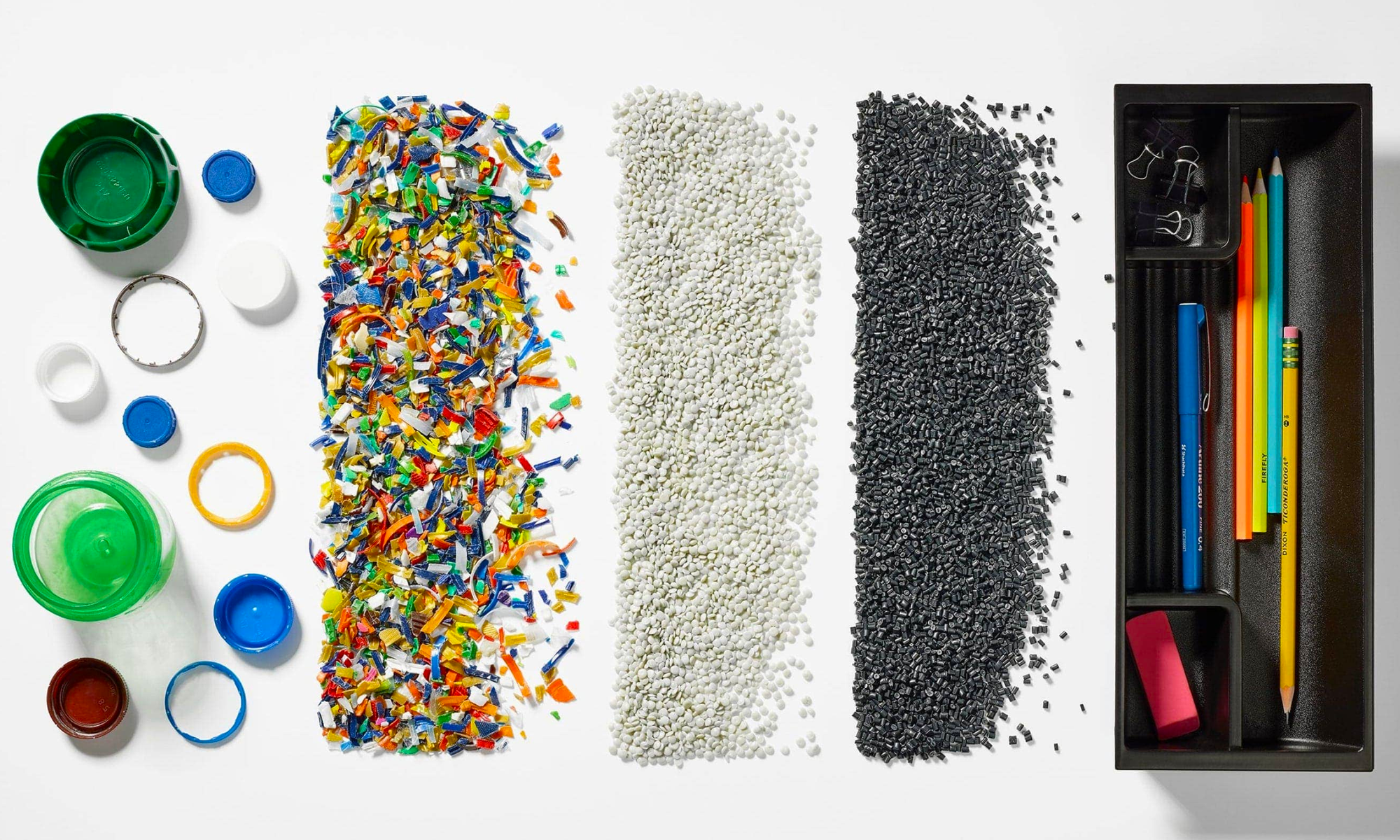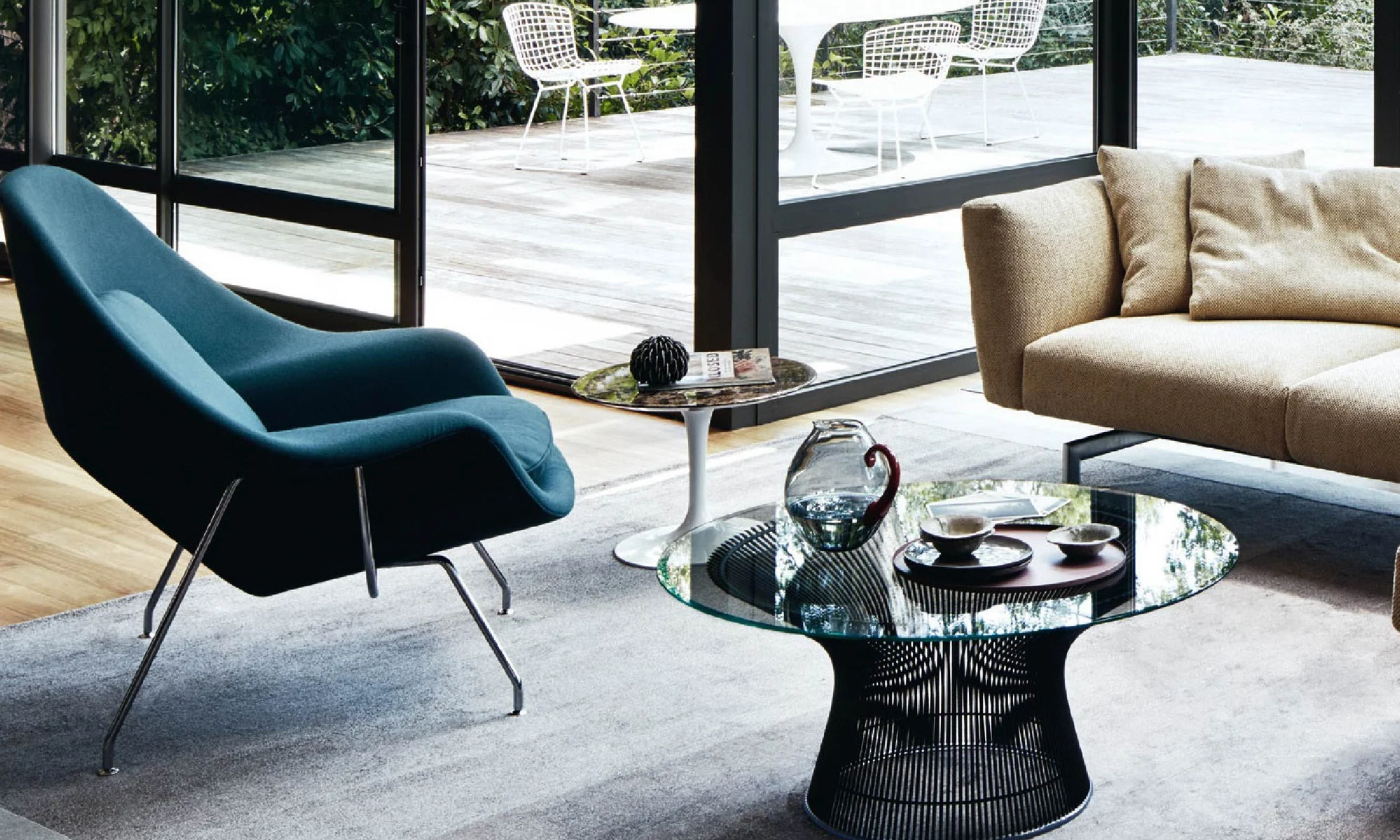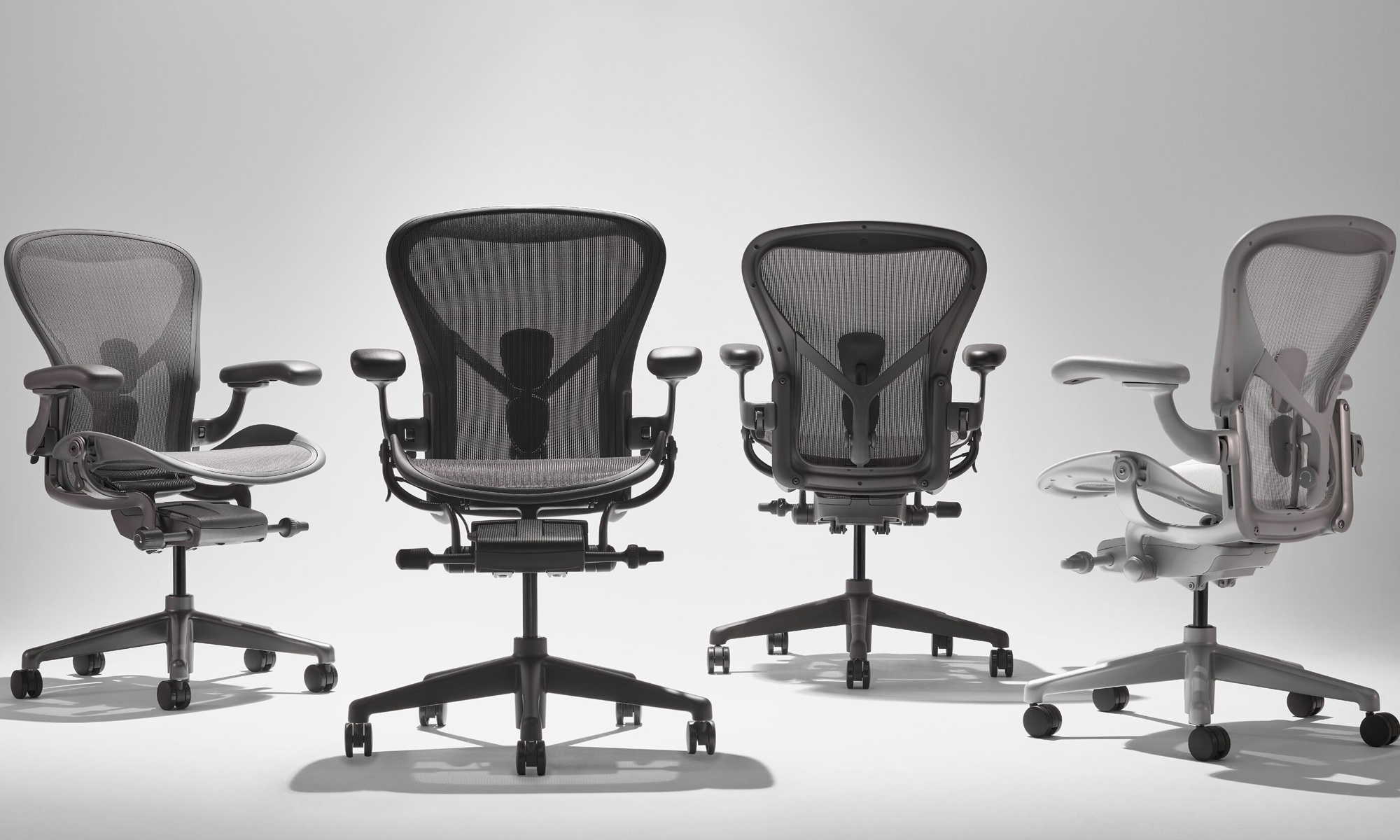
See How These Brands Invest In Our Planet
Herman Miller
Company founder D.J. De Pree said in 1953, “We will be a good corporate neighbor by being a good steward of the environment.” Adhering to this legacy of environmental stewardship has remained a core principle of Herman Miller’s business over the years, and has received even greater focus in recent years in the face of an increasingly acute climate crisis.
From a commitment to using ocean-bound plastic and FSC Certified responsibly sourced timber to their rePurpose program, which diverts up to 98% of used furniture from landfills into new products, Herman Miller is devoted to meeting its 2030 sustainability goals.
Knoll
Guided by “The Knoll 8”, a series of tenets which form the company’s environmental sustainability philosophy, each product designed and manufactured by Knoll targets environmental standards relating to its material content and production process.
Additionally, documentation for materials on post-consumer and post-industrial recycled content are required as part of the production process, underlying Knoll’s commitment to Life Cycle Assessments (LCAs) to measure environmental impacts. Additionally, Knoll products are submitted to a series of third-party certifications to ensure the most impartial and trustworthy foundation for broad compliance of environmental standards.
Read Knoll’s Sustainable Design report.
Kartell
For seventy years, Kartell has played a leading role in innovative production and product creativity. Respect for the environment is, and always has been a value that goes to the heart of the brand and in a bid to strengthen this commitment the company launched the "Kartell loves the planet" mission, the industrial manifesto with which it focuses on environmental responsibility and attention to good sustainability practices.
In recent seasons, Kartell has supplemented its use of traditional materials with innovative projects that summarize research and innovation of materials and production processes, including an increased focus on the circular economy.
View the company’s complete Kartell Loves The Planet commitment.
Artimede
Artemide has embarked on a concrete path towards 360° sustainability, not only environmental but also social. Over the years, this commitment has led to obtaining many certifications such as ISO 9001 (management system quality certification), ISO 14001 (environmental management system certification) to which ISO 45001 (management system for health and safety at work certification) was added in 2019.
Additionally, In 2019 Artemide joined the United Nations Global Compact (founded in 1997) confirming the goal of promoting, together with its collaborators, a solid and sustainable development project on which to base the company's strategy and daily functioning.
Read Artemide’s 2030 Sustainability Plan.
Flos
Flos has committed to a more eco-friendly future in a number of meaningful ways, from shifting focus from a linear to a circular economy, to making packaging entirely sustainable and enhancing durability.
See all the ways Flos is reducing their carbon footprint.

